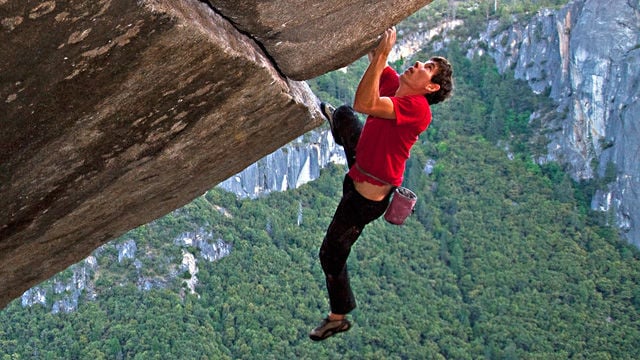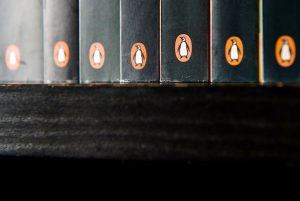What Did The Founding Fathers Eat And Drink As They Started A Revolution?
It is the unforeseen end
and the nothing before.
I am in everything, and nothing is still
just the port of my dreams.”
………………….. —Juan Ramón Jiménez
“No one gets to choose when or where to be born, but what happens after that is what you can imagine.”
— Abdi Nor Iftin
If he never composed another story, another book, his name would stand in the roster of Bohemian storytellers
If he never composed another story, another book, his name would stand in the roster of Bohemian storytellers
Memory is the great blessing of a happy life. I have nothing but pleasant memories of my mother’s family’St John bonfire night (the longest day in mittleurope) barbecues, which rank among the highlights of my small-town youth. Those picnics are part of the distant past ... yet whenever I think of the longest and shortest days I remember the smells of onions and cousin Tibo's and uncle Rudolf's home made sausages.
I’m so old, I remember what SMOTJ stands for and even when Arnold Schwarzenegger’s critics accused him of not being a very good actor...
The 21st-Century Americans Trying To Revive The Medieval Knights Templar
Taken from his dorm at Moscow’s Literary Institute in the middle of the night, Naum Korzhavin faced down his interrogators and survived. He “won this idiocy contest”... Naum
If you say something is 'likely', how likely do people think it is?
"When you use a word to describe the likelihood of a probabilistic outcome, you have a lot of wiggle room to make yourself look good after the fact."
In a famous example (at least, it’s famous if you’re into this kind of thing), in March 1951, the CIA’s Office of National Estimates published a document suggesting that a Soviet attack on Yugoslavia, or was it Czechoslovakia, within the year was a “serious possibility.” Sherman Kent, a professor of history at Yale who was called to Washington, D.C. to co-run the Office of National Estimates, was puzzled about what, exactly, “serious possibility” meant. He interpreted it as meaning that the chance of attack was around 65%. But when he asked members of the Board of National Estimates what they thought, he heard figures from 20% to 80%. Such a wide range was clearly a problem, as the policy implications of those extremes were markedly different. Kent recognized that the solution was to use numbers, noting ruefully, “We did not use numbers…and it appeared that we were misusing the words.”(via Harvard Business Review)
I HATE IT WHEN THAT HAPPENS: OLD books contain many secrets. Myths. Legends. Plots. Scandals. But researchers in Denmark seeking invisible writings found something completely unexpected: poison.
This University Library Discovered Three of Its Books Were Poisonous - Arsenic.
This University Library Discovered Three of Its Books Were Poisonous - Arsenic.
“LIKE TIM I AM DEVASTATED”: Tim Berners-Lee, the Man Who Created the World Wide Web, Has Some Regrets.
↩︎ Nautilus

*In a different world, we'd have wall-to-wall coverage of stories like the Cold River Escape ...
Literature is a place where immigrants, and the children of immigrants, can tell their stories
5 Reasons Horrible Dictators Always Catch Us Off Guard Cracked
Andrew (who escaped across the Cold War River) became known for his guiding motto: "Only the paranoid survive," and wrote a management book with the same title. According to Grove, "Business success contains the seeds of its own destruction," explaining that "Success breeds complacency. Complacency breeds failure. Only the paranoid survive."
Andrew Grove
Swimming Across: A Memoir by Andrew S. Grove - Goodreads
The True Story of Andrew Grove, TIME's 1997 Man of the Year | Time
 Lo que el agua me dio (What the Water Gave Me). Photograph: Alamy
Lo que el agua me dio (What the Water Gave Me). Photograph: AlamyPreparing Libraries for Nuclear War - JSTOR: “During the Cold War, America’s libraries helped patrons prepare for nuclear war, from stocking reference materials to providing fallout shelters: “From seemingly useless under-desk drills to legit bunkers, the general public was prepared for nuclear war during the Cold War. But what about libraries? Reference librarian Brett Spencer examines how libraries and librarians braced for the coming threat. During the 1980s, a disgruntled mate at Dept. of Defense illustrated key Cold War moments on his desk calendars.
Collection of government-issue desk calendars, massively illustrated during the Cold War by a disenchanted Department of Defense employee with 1000s of images of personal, local, national and international significance. The illustrator was a mid-level (GS-11/12) civilian planner and operations officer/analyst who worked for the Department of Defense at the US Army’s Combined Arms Combat Development
↩︎ Boston Rare Maps see also*Nitra Nuclear deterrence and the B-1 bomber

Billion-dollar blockbusters have become full of sweepingly cinematic, unbroken shots—except they’re faked.
↩︎ The Ringer
↩︎ New Yorker
There is a sorrow being outside your body
even when I am in the places where it has been
Old wounds by William Logan | The New Criterion
“Bliss it was in that dawn to be alive. But to be young was very heaven” — that’s how many older Australians, with the distorted hindsight of nostalgia, look back on the turmoil of 1968. ABC Radio National has devoted a series of its regular programs to the events around 1968. The most concise is a short discussion May 1968 revisited on Geraldine Doogue’s Saturday Extra. Understandably most are retrospective, but there is also a program about lessons for today for those who seek social change – the Gohn Day Memorial Lecture by Mary Frances Berry Lessons from past resistance movements.
"After the Ball," by Nora Perry
So let’s think twice before we cross
the twenty yards of no-man’s-land.
I know you want to get there
as fast as we can.
… Border Crossings by Thaddeus Rutkowski
When diversity means uniformity

I discovered that the world should be divided not into good and bad people but into cowards and non-cowards. Ninety-five percent of cowards are capable of the vilest things, lethal things, at the mildest threat.
↩︎ Paris Review
I discovered that the world should be divided not into good and bad people but into cowards and non-cowards. Ninety-five percent of cowards are capable of the vilest things, lethal things, at the mildest threat.
↩︎ The Ringer
↩︎ New Yorker
There is a sorrow being outside your body
even when I am in the places where it has been
ROBIN DERRICOURT. Inside the belly of the monster (and a Cold War mind).
A 1960s British student leftist did not expect to find himself on a tour inside the Pentagon, or briefed by a US Army Colonel on his role there, tracking US radicals, with a distorted Cold War model of who they were – but, well, it happened. Continue reading
“Bliss it was in that dawn to be alive. But to be young was very heaven” — that’s how many older Australians, with the distorted hindsight of nostalgia, look back on the turmoil of 1968. ABC Radio National has devoted a series of its regular programs to the events around 1968. The most concise is a short discussion May 1968 revisited on Geraldine Doogue’s Saturday Extra. Understandably most are retrospective, but there is also a program about lessons for today for those who seek social change – the Gohn Day Memorial Lecture by Mary Frances Berry Lessons from past resistance movements.
"After the Ball," by Nora Perry
So let’s think twice before we cross
the twenty yards of no-man’s-land.
I know you want to get there
as fast as we can.
… Border Crossings by Thaddeus Rutkowski
When diversity means uniformity
 I’d
been suffering under the misguided illusion that the purpose of
mainstream publishers like Penguin Random House was to sell and promote
fine writing. A colleague’s forwarded email has set me straight. Sent to
a literary agent, presumably this letter was also fired off to the
agents of the entire Penguin Random House stable. The email cites the
publisher’s ‘new company-wide goal’: for ‘both our new hires and the authors we acquire to reflect UK society by 2025.’ (Gotta
love that shouty boldface.) ‘This means we want our authors and new
colleagues to reflect the UK population taking into account ethnicity,
gender, sexuality, social mobility and disability.’ The email proudly
proclaims that the company has removed ‘the need for a university degree
from nearly all our jobs’ — which, if my manuscript were being
copy-edited and proof-read by folks whose university-educated
predecessors already exhibited horrifyingly weak grammar and
punctuation, I would find alarming.
I’d
been suffering under the misguided illusion that the purpose of
mainstream publishers like Penguin Random House was to sell and promote
fine writing. A colleague’s forwarded email has set me straight. Sent to
a literary agent, presumably this letter was also fired off to the
agents of the entire Penguin Random House stable. The email cites the
publisher’s ‘new company-wide goal’: for ‘both our new hires and the authors we acquire to reflect UK society by 2025.’ (Gotta
love that shouty boldface.) ‘This means we want our authors and new
colleagues to reflect the UK population taking into account ethnicity,
gender, sexuality, social mobility and disability.’ The email proudly
proclaims that the company has removed ‘the need for a university degree
from nearly all our jobs’ — which, if my manuscript were being
copy-edited and proof-read by folks whose university-educated
predecessors already exhibited horrifyingly weak grammar and
punctuation, I would find alarming.
The accompanying questionnaire for PRH
authors is by turns fascinating, comical and depressing. Gender and
ethnicity questions provide the coy ‘prefer not to say’ option, ensuring
that being female or Japanese can remain your deep dark secret. As the
old chocolate-or-vanilla sexes have multiplied into Baskin Robbins,
responders to ‘How would you define your gender?’ may tick, ‘Prefer to
use my own term’.
*How Orwell gave propaganda a bad name
Anthony Bourdain’s Top 10 Rules: “Don’t Care What People Expect Of You!”
P.D. James, The Children of Men
“Early this morning, 1 January 2021, three minutes after midnight, the last human being to be born on earth was killed in a pub brawl in a suburb of Buenos Aires, aged twenty-five years, two months and twelve days. If the first reports are to be believed, Joseph Ricardo died as he had lived. The distinction, if one can call it that, of being the last human whose birth was officially recorded, unrelated as it was to any personal virtue or talent, had always been difficult for him to handle. And now he is dead.”
Let’s move before they change the parking rate

No, I cannot quit writing about economic-impact-of-the-arts
reports. Let’s try something a little more focused, and talk about …
parking. Parking is part of the cost of attending a show, if it takes
place in ... read more

Via The Atlantic – these breathtaking photographs will no doubt bring you back to the finale – “The National Geographic Travel Photographer of the Year Contest is underway, with entries being accepted for just one more day—the competition closes at noon, EDT, on May 31. The grand-prize winner will be awarded $10,000 (USD). National Geographic was once again kind enough to allow me to share some of this year’s entries with you here, gathered from three categories: Nature, Cities, and People. The photos and captions were written by the photographers, and lightly edited for style.”

Via The Atlantic – these breathtaking photographs will no doubt bring you back to the finale – “The National Geographic Travel Photographer of the Year Contest is underway, with entries being accepted for just one more day—the competition closes at noon, EDT, on May 31. The grand-prize winner will be awarded $10,000 (USD). National Geographic was once again kind enough to allow me to share some of this year’s entries with you here, gathered from three categories: Nature, Cities, and People. The photos and captions were written by the photographers, and lightly edited for style.”